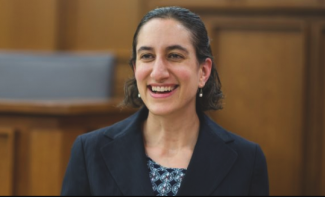
Prof. Mayeri argues that the Texas abortion law SB8 has already had devastating short- and long-term consequences, with dire effects on reproductive justice in this country.
Earlier this month, the U.S. Supreme Court heard arguments in two cases related to Texas abortion law SB8, which effectively prohibits abortions starting around the sixth week of pregnancy. SB8 gives enforcement power to private individuals, including those who do not live in Texas, to bring a lawsuit in state court against anyone who performs or “abets” an abortion in Texas and to receive $10,000 in damages.
As the U.S. Supreme Court considers procedural challenges to the Texas abortion law, the University of Pennsylvania Carey Law School’s Office of Communications spoke with Professor of Law and History Serena Mayeri about the already devastating consequences of the law.
Here, Mayeri also explores the direct threat to abortion rights on the Court’s docket: Dobbs v. Jackson Women’s Health Organization in which Mississippi has asked the Court to overturn Roe v. Wade and Planned Parenthood v. Casey, the precedents that currently place limits on states’ ability to ban pre-viability abortions. Mayeri co-authored an amicus brief in Dobbs.
Office of Communications: Can you provide a brief background about the challenges in the U.S. Supreme Court to the Texas abortion law?
Mayeri: First, in Whole Woman’s Health v. Jackson, abortion providers sued a state judge and a county clerk as well as several state officials to enjoin them from participating in the enforcement of SB8. This is the case in which a closely divided Court declined to prevent the law from going into effect in September.
The second case, United States v. Texas, was filed by the Biden administration directly against the state of Texas in early September, seeking to enjoin enforcement of SB8. A federal district court issued a 113-page opinion granting that injunction, but it was voided by the Fifth Circuit Court of Appeals.
Both cases were briefed and argued on an unusually expedited review schedule. The questions presented are ostensibly procedural: whether abortion providers and/or the federal government may challenge the law in court by suing state officials or the state itself. But the stakes are substantive: because the Court allowed SB8 to take effect rather than blocking the law while legal challenges proceeded, access to abortion — especially for low-income Texans, people of color, and people living in rural communities — has been severely curtailed.
Read the entire story HERE
